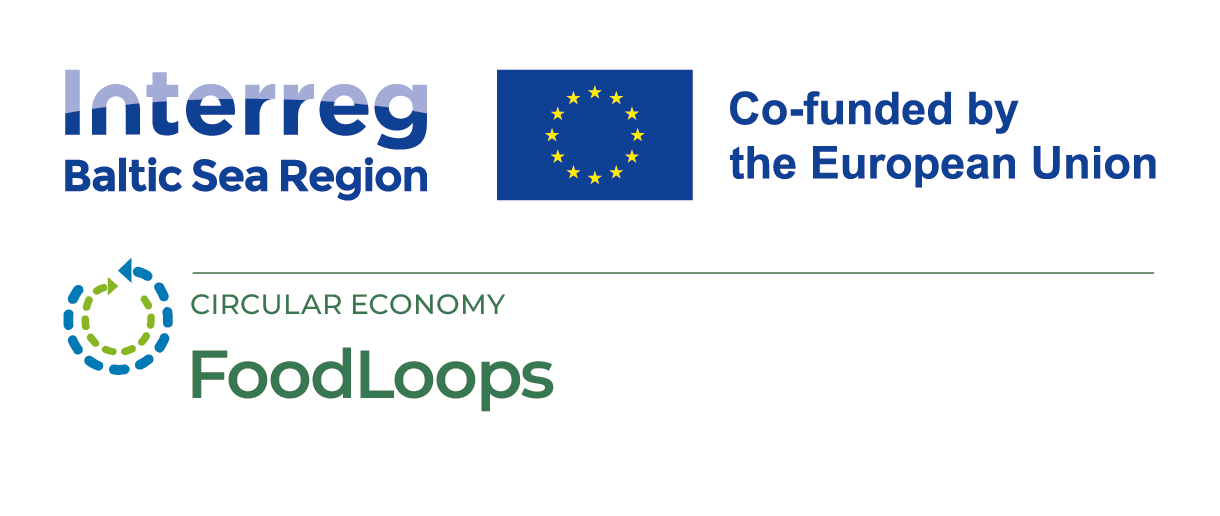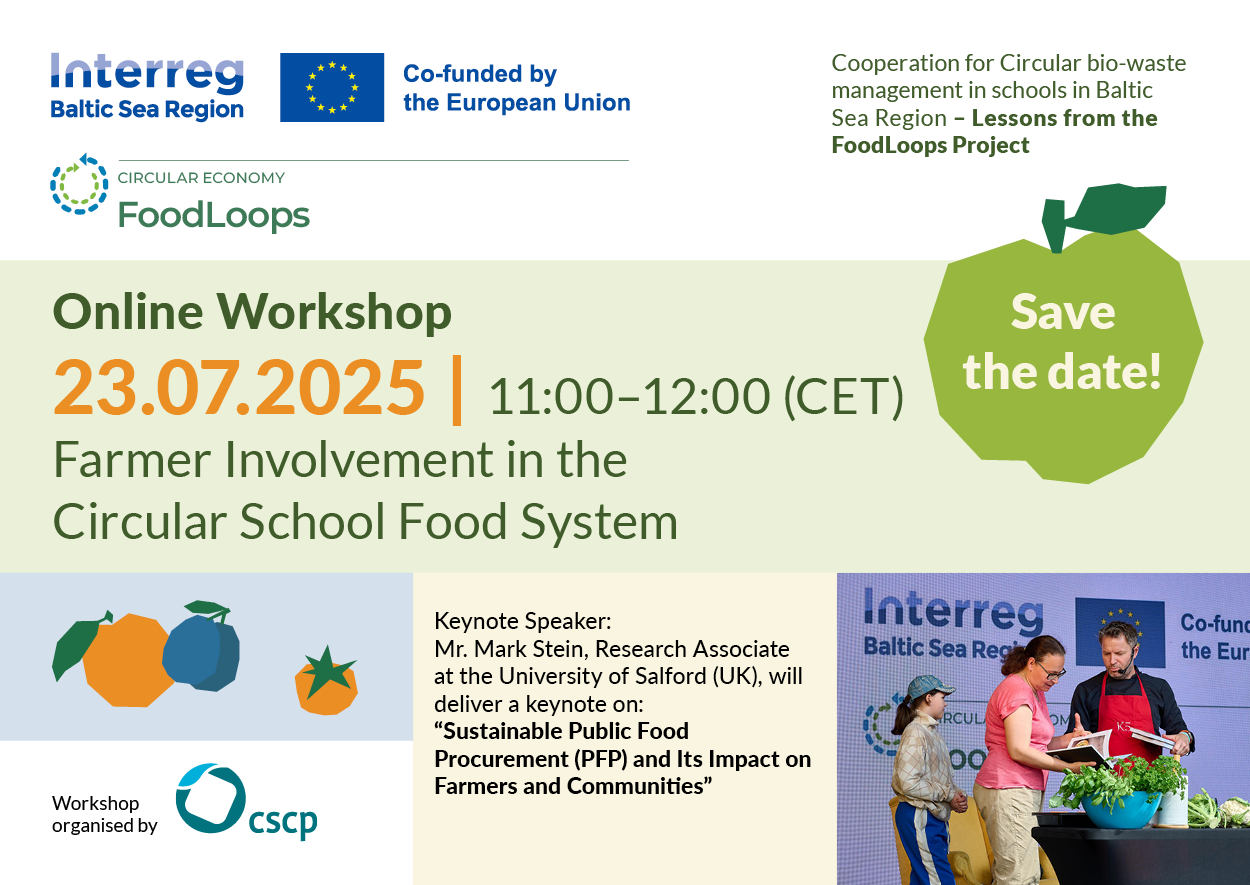
Foodloops Manual Launched: Turning School Waste into Sustainable Learning Opportunities
17 August 2025
The Interreg Baltic Sea Region (BSR)-funded Foodloops project has released its Manual on Local Cooperation for Circular Bio-Waste in Schools and Beyond, a practical guide designed to help schools, municipalities, educators, farmers, and chefs work together to transform organic waste into valuable resources.
The manual builds on hands-on experiences in Lithuania, Finland, and Poland, where Foodloops pilots demonstrated how school food systems can become more sustainable and resilient. By empowering schools to separate food waste at the source—such as in cafeterias—communities can reduce waste, support local farmers, and create healthier food environments for students.
Circular cooperation in action
The manual highlights successful collaborations between schools, farmers, and local authorities. It shows how municipal subsidies, flexible school food contracts, gardening programs, and nutrition strategies can not only reduce waste but also improve student health and strengthen community ties.
One of the most inspiring pilots took place at Primary School No. 61 in Gdańsk, Poland, where students and teachers set up a full-cycle composting system. Using the “hot” Berkeley-style method, over 50 participants transformed food and garden waste into high-quality compost. The compost was then used to grow potatoes in the school garden, reinforcing the “field-to-table” connection.
The project also:
-
Engaged students in hands-on learning and sustainability practices
-
Integrated composting into the curriculum through the “From Field to Table” module
-
Collaborated with a local farmer to apply real-world agricultural expertise
-
Demonstrated how schools can become hubs of circular innovation
A living classroom for sustainability
“The Foodloops project is about much more than waste management—it’s about shaping future generations who understand how circular systems work,” said the project manager at the Foodloops Farmer Involvement Workshop held on 23 July 2025. The event also featured a keynote by Mark Stein, who emphasized the role of sustainable public food procurement in empowering small farmers.
Inspiring the next generation
The Gdańsk composting pilot showed how even small initiatives can have a big impact: reducing waste, strengthening community cooperation, and teaching students practical skills for climate resilience.
To explore this and other case studies that demonstrate how schools and communities can close the loop on bio-waste, read the newly released Foodloops Manual.






